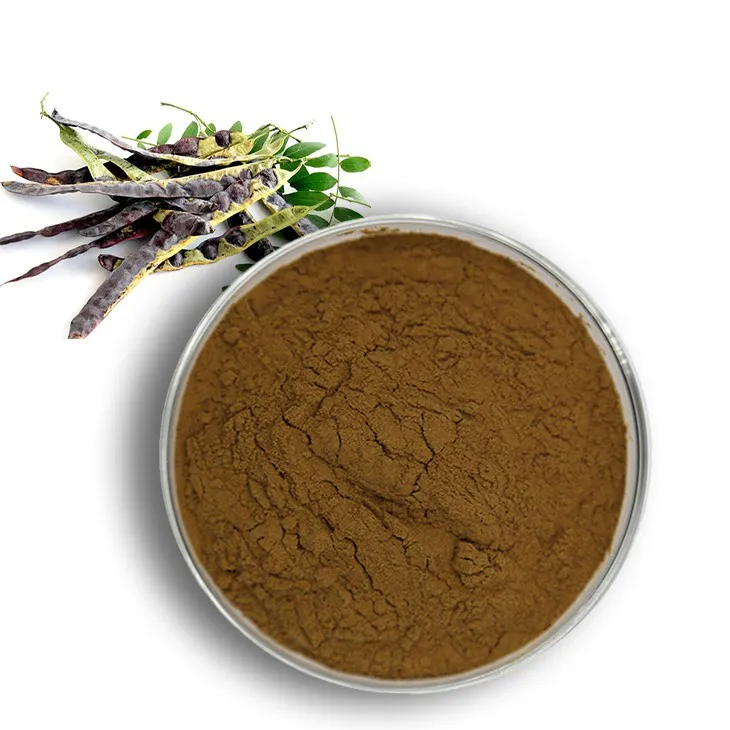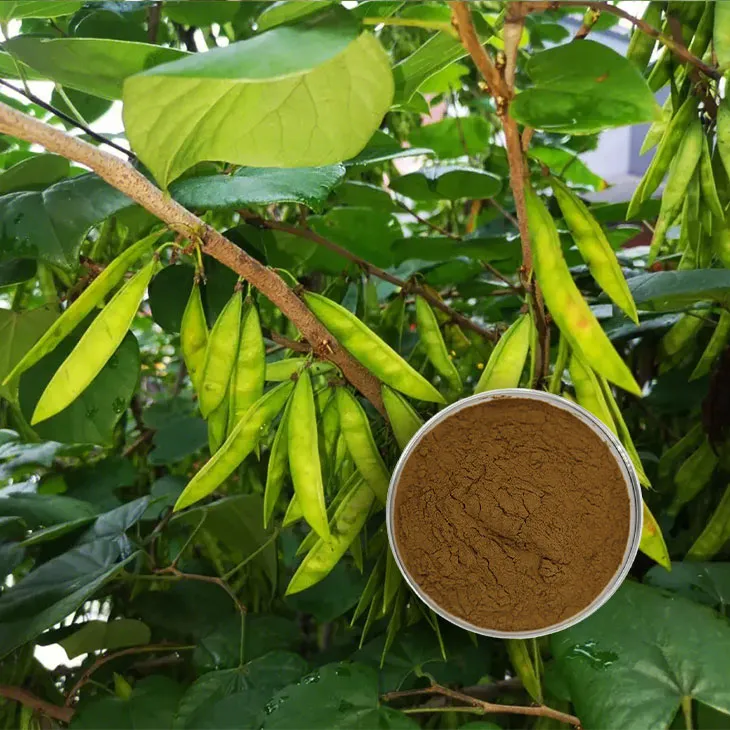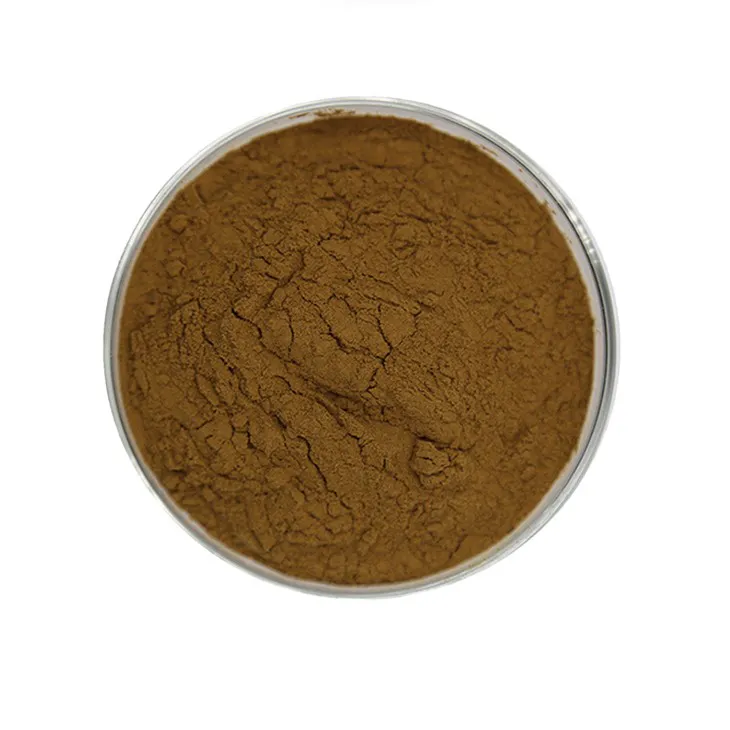- 0086-571-85302990
- sales@greenskybio.com
100% Pure Natural Saponin Extract.
2024-11-28

Introduction to Saponin Extract
The 100% natural Saponin Extract is truly a remarkable substance that has captured the attention of various industries. Saponins, which are glycosides, are found naturally in plants. They possess unique chemical structures that give rise to their diverse properties and potential applications.

Medicinal Applications of Saponin Extract
Anti - Inflammatory Effects
Saponin extracts have been the focus of much research in the field of medicine, particularly for their anti - inflammatory effects. The body's immune system can sometimes overreact, leading to inflammation in different tissues. Saponins seem to have the ability to modulate the body's immune response, potentially reducing this inflammation. This makes them a very interesting area of study in the search for treatments for chronic inflammatory diseases such as arthritis, where inflammation can cause pain and damage to joints over time.Other Potential Health Benefits
In addition to anti - inflammation, saponin extracts may also have other health - promoting properties. Some studies suggest that they could have antioxidant effects, which help to protect the body's cells from damage caused by free radicals. There is also ongoing research into their potential role in preventing certain types of cancer. However, more research is needed to fully understand these possible benefits and how saponins can be effectively used in medical treatments.
Food Industry Applications
Traditional Use and New Applications
In the food industry, plants containing saponins have been used in traditional cooking for a long time. For example, some traditional herbal teas or certain types of vegetables may contain saponins that contribute to their taste or health - promoting properties. Now, the pure saponin extract is being explored for new and innovative applications.As Natural Emulsifiers
One of the most exciting applications in the food industry is the use of saponins as natural emulsifiers. Emulsifiers are substances that help to mix two immiscible substances, such as oil and water, together. In food products, this can improve the texture and stability. For instance, in salad dressings or creamy sauces, saponin - based emulsifiers could potentially replace synthetic emulsifiers, providing a more natural alternative. This is especially appealing to consumers who are increasingly interested in clean - label and natural food products.Contribution to Flavor
Saponins can also play a role in the flavor profiles of foods. They may interact with other compounds in the food to produce unique tastes and aromas. Some saponin - containing plants are known for their distinct flavors, and by isolating and using saponin extracts, food manufacturers may be able to create new and interesting flavor combinations. This could lead to the development of novel food products with enhanced taste experiences.
Environmental Protection Applications
The Advantage of Biodegradability
In the realm of environmental protection, natural saponin extracts are emerging as a great alternative to synthetic chemicals. One of their key advantages is their biodegradability. Synthetic chemicals often persist in the environment for a long time, causing potential harm to ecosystems. In contrast, saponins break down easily, which means they are less likely to accumulate in the environment and cause long - term damage.Use in Cleaning Products
A significant application area is in cleaning products. When used in detergents or soaps, saponin extracts can clean effectively while being gentle on the environment. They can break down without leaving harmful residues in water systems or soil. This makes them a more sustainable option compared to many traditional cleaning agents. For example, in household cleaners, saponin - based products could be used for general cleaning tasks, reducing the environmental impact of cleaning activities.
Challenges and Future Prospects
Challenges in Extraction and Purification
Despite their many potential benefits, there are some challenges associated with saponin extracts. One of the main difficulties lies in the extraction and purification processes. Extracting pure saponin from plants can be a complex and costly procedure. Different plants may contain different types and amounts of saponins, and finding the most efficient extraction methods requires further research. Additionally, ensuring the purity of the extract is crucial for its various applications, especially in the medical and food industries where high quality and safety standards are required.Future Research and Development
Looking ahead, there is great potential for further research and development of saponin extracts. Scientists are likely to continue exploring their medicinal properties, aiming to develop new drugs or therapies based on saponins. In the food industry, more research could lead to the discovery of new applications and the optimization of existing ones. In environmental protection, efforts may focus on finding more ways to incorporate saponin - based products into sustainable practices. With continued innovation, the 100% natural saponin extract could play an even more significant role in multiple sectors in the future.Conclusion
In conclusion, the 100% natural saponin extract is a multi - faceted substance with a wealth of potential. Its applications in medicine, the food industry, and environmental protection are just the beginning. While there are challenges to overcome, the future looks promising for this natural extract. As research continues and technology advances, we can expect to see more innovative uses of saponin extracts, contributing to the development of more sustainable, healthy, and effective products across different industries.
FAQ:
What are the main sources of saponin?
Saponins occur naturally in plants. Many different plant species can be sources of saponins. For example, some leguminous plants, certain species of ginseng, and yucca plants are known to contain saponins.
How does saponin extract show anti - inflammatory effects?
Saponin extracts can potentially modulate the body's immune response. They may interact with immune cells and signaling pathways in the body. By doing so, they can help to reduce inflammation in various tissues, although the exact mechanisms are still being studied.
Can saponin extract be used in all types of food products as an emulsifier?
No. While some saponins can act as natural emulsifiers, not all food products are suitable for saponin - based emulsifiers. The type of food, its pH, and other ingredients present can affect the performance of saponin as an emulsifier. Also, regulatory requirements for different food types need to be considered.
What makes saponin extract a sustainable option in environmental protection?
The biodegradability of saponin extract makes it a sustainable option. It can break down easily in the environment, in contrast to many synthetic chemicals that may persist for long periods. When used in products like cleaning agents, it does not leave harmful residues in the environment.
Are there any potential side effects of using saponin extract?
Although saponin extract has many potential benefits, there may be some potential side effects. In high doses, some saponins may be toxic. Also, some people may have allergic reactions to saponins. However, more research is needed to fully understand these potential side effects.
Related literature
- The Chemistry and Biological Significance of Saponins"
- "Saponins: Properties, Applications and Health Benefits"
- "Natural Saponin Extracts in Food and Pharmaceutical Industries"
- ▶ Hesperidin
- ▶ Citrus Bioflavonoids
- ▶ Plant Extract
- ▶ lycopene
- ▶ Diosmin
- ▶ Grape seed extract
- ▶ Sea buckthorn Juice Powder
- ▶ Fruit Juice Powder
- ▶ Hops Extract
- ▶ Artichoke Extract
- ▶ Mushroom extract
- ▶ Astaxanthin
- ▶ Green Tea Extract
- ▶ Curcumin
- ▶ Horse Chestnut Extract
- ▶ Other Product
- ▶ Boswellia Serrata Extract
- ▶ Resveratrol
- ▶ Marigold Extract
- ▶ Grape Leaf Extract
- ▶ New Product
- ▶ Aminolevulinic acid
- ▶ Cranberry Extract
- ▶ Red Yeast Rice
- ▶ Red Wine Extract
-
Hops Extract
2024-11-28
-
Aguaje Extract
2024-11-28
-
Eucommia Ulmoides Extract
2024-11-28
-
Pine bark Extract Powder
2024-11-28
-
Hawthorn Extract
2024-11-28
-
Beetroot juice Powder
2024-11-28
-
Eyebright Extract
2024-11-28
-
Polygonum Cuspidatum Extract
2024-11-28
-
Stevia Extract
2024-11-28
-
Chasteberry Extract
2024-11-28





















